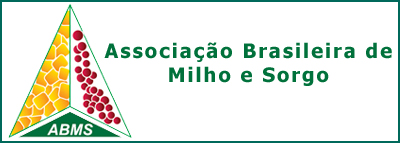ROOT SYSTEM IN MAIZE PLANTS CULTIVATED UNDER WATER DEFICIT AND APPLICATION OF CHITOSAN
Palavras-chave:
Biopolymers, Water deficit, WinRHIZOResumo
Low water availability is characterized as an abiotic stress
that limits the agricultural production. Due to the physical and chemical
characteristics of the chitosan (CHT), this substance might stimulate
physiological responses on plants to tolerate the water deficit. In this sense,
we submitted corn plants to water deficit and application of chitosan on the
leaves (140 mg/L) during pre flowering stage. It were analyzed two corn
hybrids genotypes contrasting for water deficit tolerance: DKB 390 (tolerant)
and BRS1010 (sensitive). Then, we performed evaluations on the root
system and production components. Corn plants submitted to the application
of chitosan presented a specific behavior: when compared the hybrids,
the tolerant one presented a root system that was more developed and an
expressive agronomical yield. These results highlight the fact that the chitosan
stimulates plant growth, enhancing their root system and contributing to
increase the availability and absorption of water and nutrients. The chitosan
presents a potential to reduce the negative effects of water deficit on the root
systems, without compromising the agronomical yield.
Downloads
Publicado
Como Citar
Edição
Seção
Licença
Autores que publicam nesta revista concordam com os seguintes termos:- Autores mantém os direitos autorais e concedem à revista o direito de primeira publicação, com o trabalho simultaneamente licenciado sob a Creative Commons Attribution License que permitindo o compartilhamento do trabalho com reconhecimento da autoria do trabalho e publicação inicial nesta revista.
- Autores têm autorização para assumir contratos adicionais separadamente, para distribuição não-exclusiva da versão do trabalho publicada nesta revista (ex.: publicar em repositório institucional ou como capítulo de livro), com reconhecimento de autoria e publicação inicial nesta revista.
- Autores têm permissão e são estimulados a publicar e distribuir seu trabalho online (ex.: em repositórios institucionais ou na sua página pessoal) a qualquer ponto antes ou durante o processo editorial, já que isso pode gerar alterações produtivas, bem como aumentar o impacto e a citação do trabalho publicado



